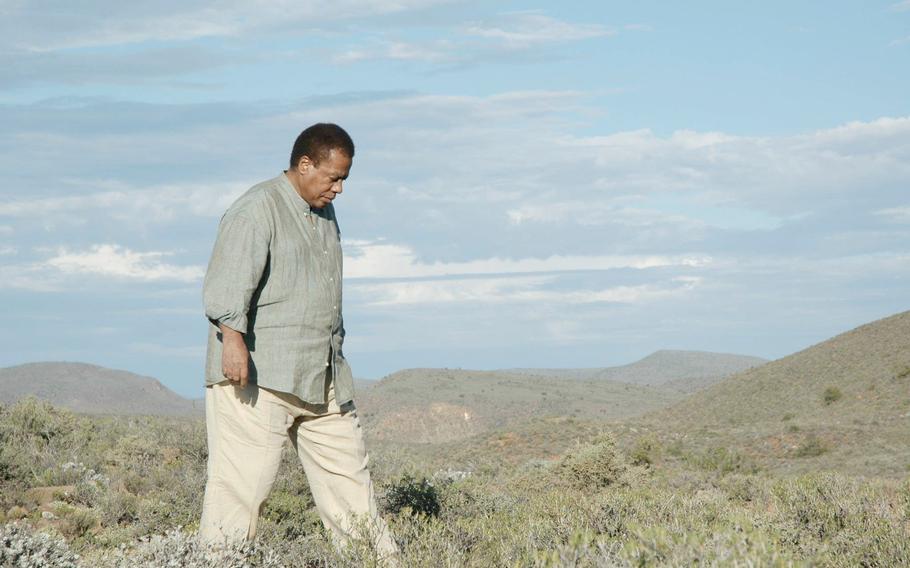
Wayne Shorter, the virtuosic jazz saxophonist, composer and U.S. Army veteran, died Thursday, March 2, 2023, in Los Angeles, according to multiple reports. He was 89. (Wayne Shorter/Facebook)
(Tribune News Service) — Wayne Shorter, the virtuosic jazz saxophonist, composer and U.S. Army veteran, died Thursday in Los Angeles, according to multiple reports. He was 89.
The Newark, N.J., native was best known for his genre-busting work with Art Blakey’s Jazz Messengers, Miles Davis’ Second Great Quintet and later co-founding the fusion outfit Weather Report.
“(Shorter) is probably jazz’s greatest living small-group composer and a contender for greatest living improviser,” the New York Times wrote in 2008.
He received 12 Grammy Awards across his extensive career, including a 2014 lifetime achievement award for his “prolific contributions to our culture and history.”
In 2022, the city of Newark renamed a street Wayne Shorter Way, in celebration of the acclaimed artist raised in the Ironbound, just off McCarter Highway.
“He’s surely one of the most creative people I’ve ever met,” said Christian McBride, the Grammy-winning jazz bassist and Artistic Advisor for Jazz Programming at Newark’s New Jersey Performing Arts Center, in an interview with NJ Advance Media last year. “(Shorter) is creative in how he speaks, how he lives, how he sees things. He’s just always in some sort of artistic, metaphoric realm. I think it’s beautiful.”
NJ Advance Media spoke to Shorter himself in 2022, on phone from his L.A. home, who discussed his New Jersey upbringing, and how the city cultivated his love for music and the unknown.
When a truck was abandoned on the lot opposite their home, a young Shorter and his brother would sneak into the vehicle, pretending it was a B-25 bomber.
And when his parents would ask little Wayne what he’d done all day, he’d simply say “nothing.”
“That nothing is what I wanted to keep,” Shorter told NJ Advance Media. “I wanted to find out what that nothing was.”
In the 1940s, while other Newark kids were playing baseball, Shorter created his own comic book called “Other Worlds,” an early manifestation of his lifelong love of science fiction.
After a drawing he titled “The Football Game” won a blue ribbon and was highlighted in The Star-Ledger, Shorter was encouraged to enroll at Arts High School in Newark, where he graduated in 1952.
Though he was bright, Shorter recalls he wasn’t the most attentive student.
“I played so much hooky,” he said. “I would walk by the school and go right into the [Adams] theater.”
There the teen would see movies, burlesque shows, and the big jazz bands. One day, he was caught playing hooky and his parents were called in for a conference. The principal brought in a music teacher, Achilles D’Amico, and said Shorter would also take up music to better occupy his time.
D’Amico introduced him to emerging jazz artists such as Charlie Parker and Thelonious Monk, and Shorter switched from clarinet — his father’s idea — to saxophone.
Those adventurous players began to inhabit Shorter’s imagination, sharing space with comic book heroes; his high school yearbook called him a “bebop fiend,” referencing the heady style that would inform his music for decades to come.
He attended New York University and formed a band to play jazz clubs in the city and Newark before serving two years in the Army.
Upon his return came the stints with Blakey, Davis, features on 10 Joni Mitchell albums and cementing himself as another stalwart comprising the Brick City’s deep jazz heritage, which includes Harlem stride pianist, Willie “The Lion” Smith, saxophonist James Moody, and legendary vocalists Sarah Vaughan and Betty Carter.
“Wayne Shorter is one of Newark’s legendary natives,” Mayor Ras Baraka said, in a statement provided to NJ Advance Media, last year. “... Shorter is an inspiration, role model, and exemplar to future generations of musicians in Newark and across the globe.”
Shorter has often spoken about how Davis would push musicians in his own zen-like way to explore their creativity. In a 2017 Rolling Stone interview, Shorter recounted: “He’d say, ‘Hey, Wayne, you ever feel like you wanna play like you don’t know how to play?’”
Through the years when asked to define jazz, Shorter’s answer often was: “I dare you.”
©2023 Advance Local Media LLC.
Visit nj.com.
Distributed by Tribune Content Agency, LLC.